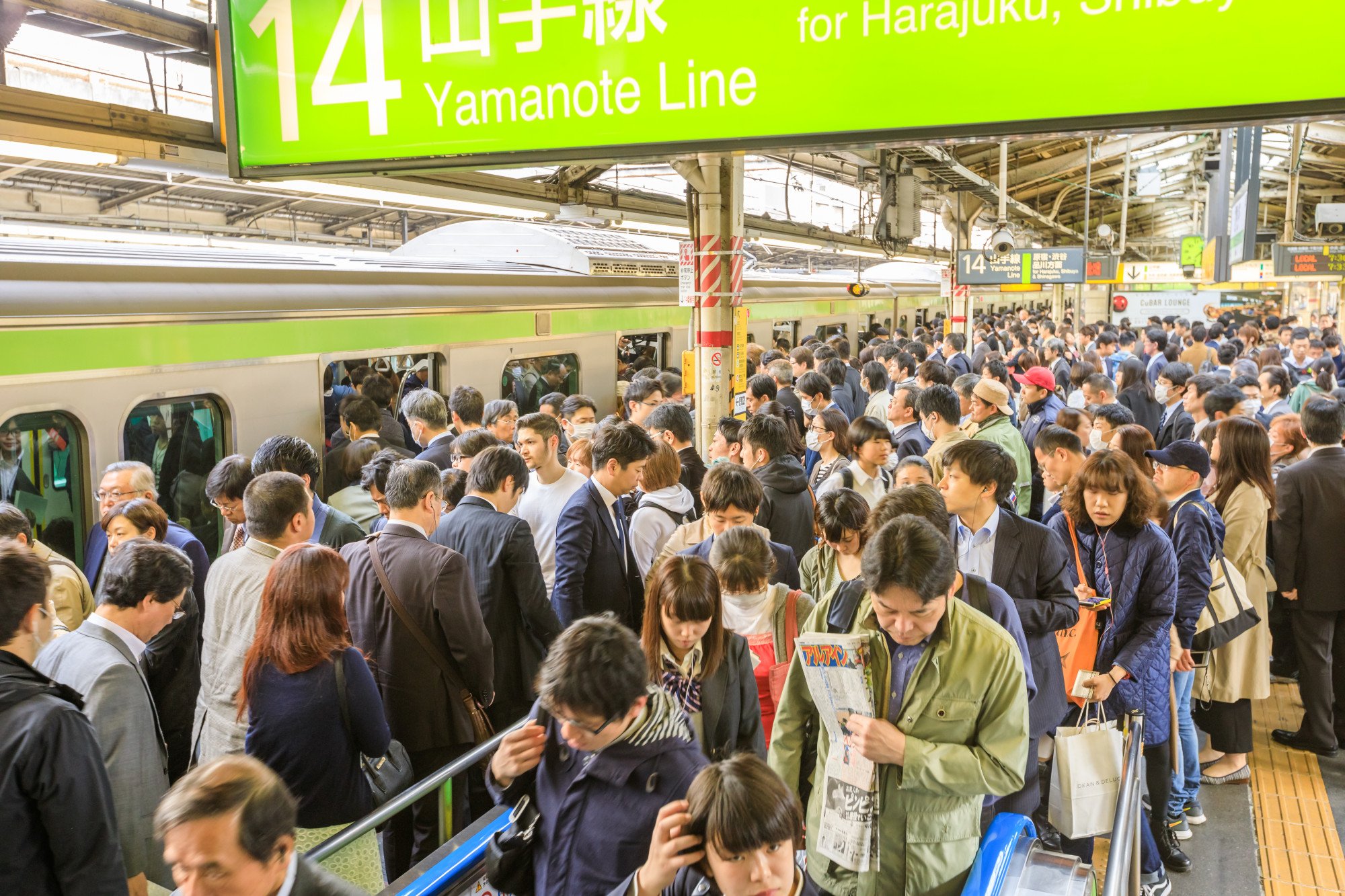Japan gets tough to deter gropers on trains, protect women as alarming ‘chikan’ problem persists
[ad_1]
The exams are taking place in the latter part of this week for universities in Tokyo while those in surrounding prefectures are scheduled to conclude on Saturday, which means tens of thousands of teenagers will be riding unfamiliar train lines to reach testing centres. Entrance tests are due to go on longer in other parts of the country, including Osaka and Fukuoka, with countermeasures against chikan also being stepped up in those cities.
Blatant groping is a problem that Japanese women have had to endure on public transport for decades, but police are being more forceful than usual in their campaign to clamp down on the perpetrators after noting an increase in online posts and exchanges encouraging would-be molesters to target students.
No ‘real change’ even as more sexual harassment cases surface in Japan
No ‘real change’ even as more sexual harassment cases surface in Japan
The Asahi newspaper reported that authorities had seen an uptick in messages suggesting that female students would be distracted by their upcoming exams, but also less likely to report an assault to railway staff or the police out of fear they will be late for the start of their exams.
“The internet has made it much easier for these people to exchange messages and tips on the best trains and times of the day for chikan,” said Shinichi Ishizuka, founder of the Tokyo-based Criminal Justice Future think tank.
“And at times like the exam season, it is easy for them to find girls of 17 and 18 who will be travelling to exam centres at known places and known times,” said Ishizuka, the former director of the criminology research centre at Kyoto’s Ryukoku University.
Railway companies launched a prevention campaign at the start of the year, with posters in stations declaring, “Groping and clandestine filming are crimes”. Victims are encouraged to report any assaults, while other passengers are also being urged to intervene if they see someone being targeted.
Calls grow for Japan’s Fujitsu to pay up in Britain’s Post Office scandal
Calls grow for Japan’s Fujitsu to pay up in Britain’s Post Office scandal
Nearly 9,000 train carriages throughout Tokyo have been fitted with surveillance cameras, and staff have been equipped with small cameras that they can attach to their uniforms to monitor passengers’ actions.
Police are also stepping up patrols, both of uniformed officers in and around stations and plain clothes officers deployed on train lines that have reported large numbers of incidents.
Train companies in major urban centres across Japan are also increasing announcements warning women to be on their guard against molesters.
“The police and train firms have introduced initiatives through the years designed to stop this from happening, but it is proving quite difficult to achieve that,” Ishizuka said.
“And while these measures are designed to tell women to be more careful and to try to reassure them, we also have to see them as warnings aimed directly at the chikan,” he added.
Reliable statistics are hard to come by, but an alarming number of women in Japan’s cities admit they have been illicitly touched while using public transport. About 48.7 per cent of women over age 20 had been groped at least once while commuting, according to a study by a professor from Shumei University published in 2012.
Kayako, now 39 years old, says she was molested after she fell asleep on a late-night train when she was in her early 20s, with a male passenger grabbing her breast.
“It was a shock and I didn’t know how to react because it happened so fast and I had been asleep,” she said. “There were not many other people on the train and it seemed no one else had seen anything, so what could I do?
“I think it is terrible that these men are targeting girls who are already very stressed about their exams.”

Ishizuka said there had been repeated efforts to stop chikan touching other passengers, with prefectures and cities introducing legislation and ramping up punishments, but the problem persists.
“It’s going to be very difficult to put a complete stop to this sort of behaviour,” he said. “When I was a practising lawyer, I represented a 35-year-old man who had a good job and an apparently stable home life but had been arrested in Tokyo for touching a woman on a train.
“He confessed to the allegations and tried to explain his actions as a ‘hobby’ that helped him to relieve stress,” Ishizuka added. “I believe it is the same among many of the others who commit similar crimes.
“This is a problem of our society and it is extremely difficult for these people to admit they have a problem and to convince them what they are doing is harmful to other people because, to them, this is ‘normal’,” he said.
As Japan tourism rises from the ashes, more visitors get singed by smoking laws
As Japan tourism rises from the ashes, more visitors get singed by smoking laws
Even the threat of a prison term of up to a year is often not enough to deter them, Ishizuka said.
He said that first-time offenders are generally not prosecuted if they compensate victims and are given a warning not to repeat their misdeeds, while repeat offenders face fines and prison terms of up to two years.
But there is one effective way to fight back against chikan, according to Ishizuka.
“The biggest threat that police have is that their names will be released during a court case and that their family, neighbours and work colleagues will hear what happened,” he said. “That is the police’s most powerful deterrent.”
[ad_2]
Source link


